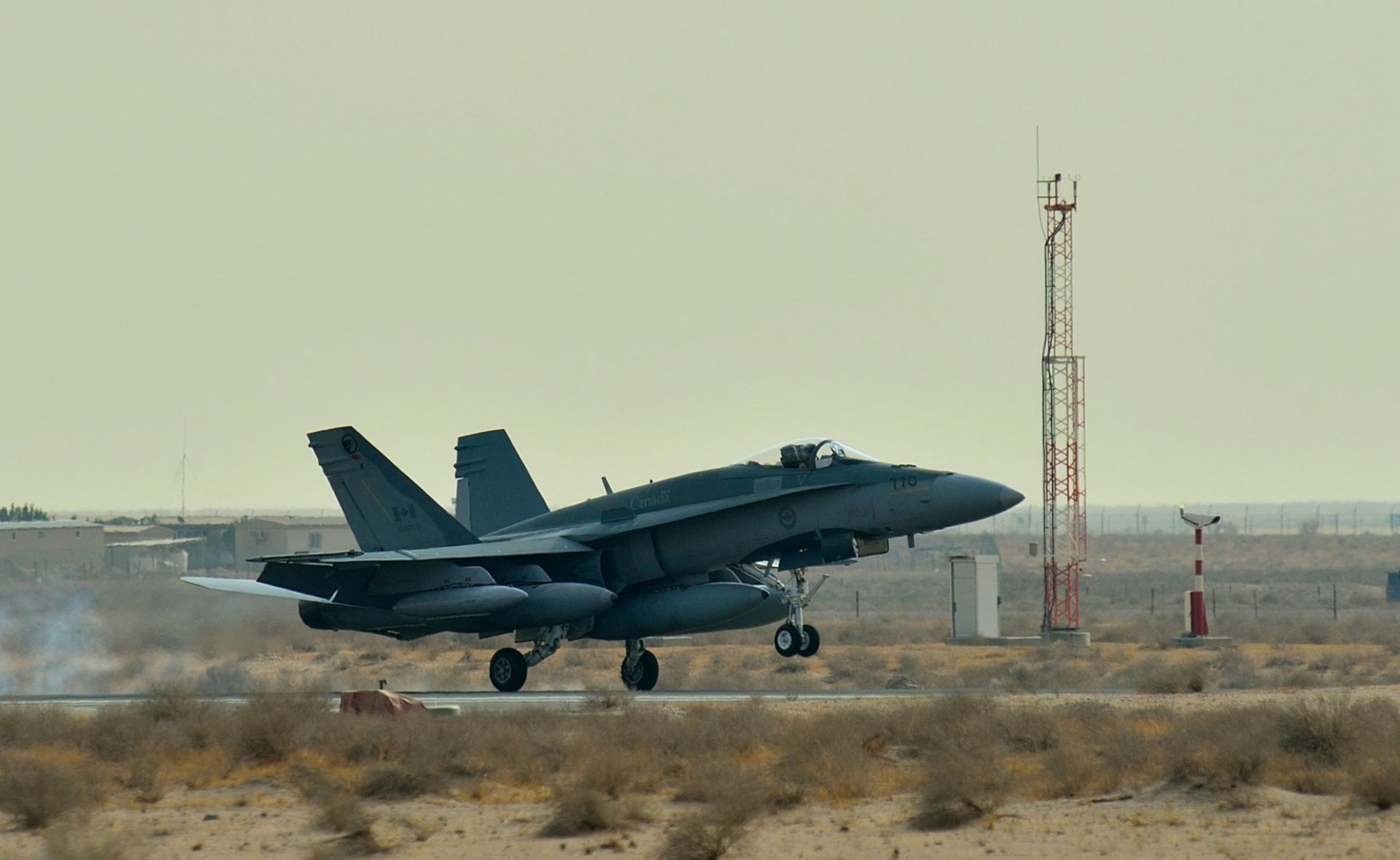The U.S. State Department has approved the sale of 18 F/A-18E/F Super Hornets and associated equipment to Canada as part of a potential deal worth $5.23 billion, according to a September 12 announcement from the U.S. Defense Security Cooperation Agency (DSCA).
The announcement outlines the potential sale of ten F/A-18Es, eight F/A-18Fs, eight F414-GE-400 engine spares, AN/APG-79 radars, 100 AIM-9X-2 Sidewinder Block II missiles, 30 AIM-9X-2 Sidewinder Block II Captive Air Training Missiles, eight AIM-9X-2 Sidewinder Block II Special Air Training Missiles, as well as additional avionics and electronics.
The principal contractors will be: Boeing Company, St. Louis, MO; Northrop Grumman, Los Angeles, CA; Raytheon, El Segundo, CA; General Electric, Lynn, MA; and Raytheon Missile Systems Company, Tucson, AZ.
Despite the State Department’s approval, there is no guarantee that an actual deal will come to fruition. Canada currently operates a fleet of older CF-18 Hornets, and has faced difficulty in finding a replacement. The previous Conservative government wanted to buy 65 F-35 Joint Strike Fighters to replace the Hornet fleet, but that effort ultimately came to a halt due to cost concerns and opposition from the Liberals that were pushing for the government to hold a formal fighter competition.
When the Liberals came to power, Prime Minister Justin Trudeau said that the government would no longer buy the F-35, and that alternative options would be examined.
Then, in summer 2016, the government announced a plan to buy 18 Super Hornets to serve as interim fighters until a formal CF-18 replacement could be found. The requirement for the interim aircraft stems from a change to Canada’s defense policy that identified a capability cap in simultaneously meeting NATO and NORAD air defense requirements.
If the Liberal government stands by their promise to not buy the F-35, then the Super Hornet would be the next logical choice. The proposed sole-source interim purchase could therefore potentially be seen as a bridge to a larger Super Hornet acquisition down the road.
However, an unrelated trade dispute between Super Hornet manufacturer Boeing and Canadian firm Bombardier over civil airliners appears to have stalled the interim purchase, and it is unclear if Canada will move forward with a contract for the Super Hornets at this time. Canada has also considered the possibility of purchasing used F-18s from Australia to supplement its existing fleet, which would be less costly than procuring new aircraft from Boeing.
Another option would be to abandon the interim purchase altogether, and accelerate the effort to acquire a formal CF-18 replacement.










